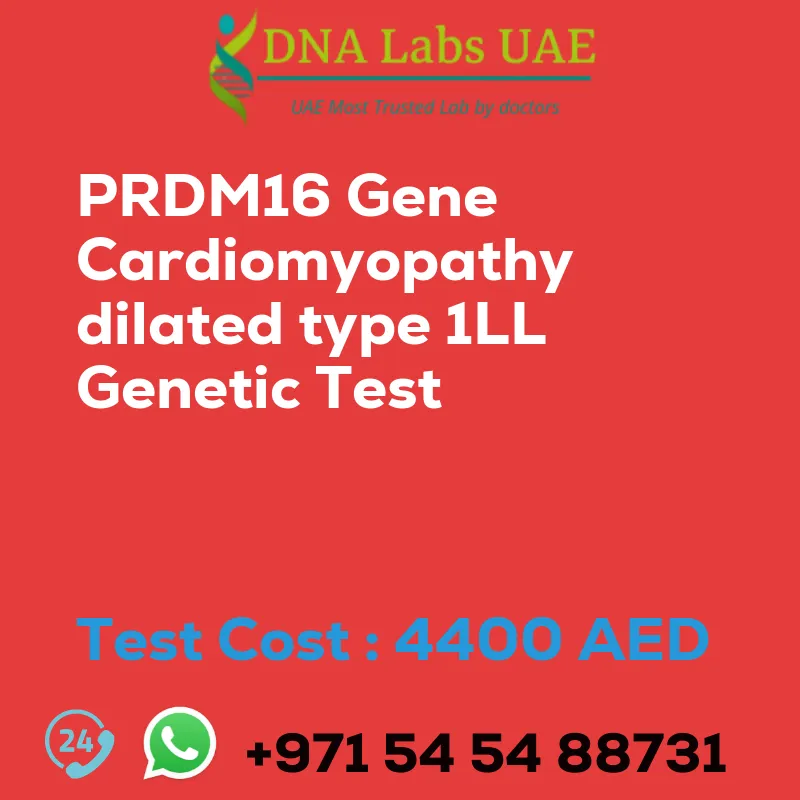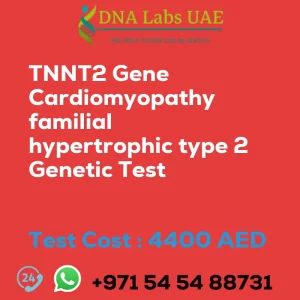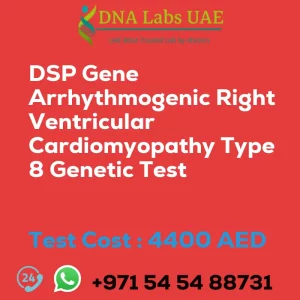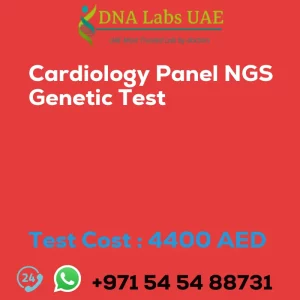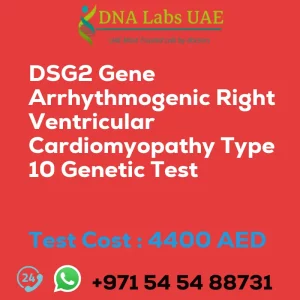PRDM16 Gene Cardiomyopathy Dilated Type 1LL Genetic Test
Test Name: PRDM16 Gene Cardiomyopathy Dilated Type 1LL Genetic Test
Components: Blood or Extracted DNA or One drop Blood on FTA Card
Price: 4400.0 AED
Report Delivery: 3 to 4 Weeks
Method: NGS Technology
Test Type: Cardiovascular Pneumology Disorders
Doctor: Cardiologist
Test Department: Genetics
Pre Test Information: Clinical History of Patient who is going for PRDM16 Gene Cardiomyopathy, Dilated Type 1LL NGS Genetic DNA Test. A Genetic Counselling session to draw a pedigree chart of family members affected with PRDM16 Gene Cardiomyopathy, Dilated Type 1LL NGS Genetic DNA Test gene PRDM16
Test Details
The PRDM16 gene is associated with a type of cardiomyopathy known as dilated cardiomyopathy type 1LL (CMD1LL). This genetic condition is characterized by the enlargement and weakening of the heart muscle, leading to reduced pumping ability and potential heart failure.
NGS (Next-Generation Sequencing) genetic testing is a method used to analyze an individual’s DNA to identify genetic variations or mutations that may be responsible for a particular condition or disease. In the case of CMD1LL, NGS can be used to detect mutations in the PRDM16 gene that are associated with the development of dilated cardiomyopathy.
NGS genetic testing involves the sequencing of a person’s entire genome or specific targeted genes, such as the PRDM16 gene. This technology allows for the identification of genetic variations that may be missed by traditional genetic testing methods.
By identifying mutations in the PRDM16 gene, NGS genetic testing can help in the diagnosis and management of individuals with CMD1LL. It can also provide valuable information for genetic counseling and family planning.
It’s important to note that NGS genetic testing is typically performed by healthcare professionals, such as geneticists or genetic counselors, in specialized laboratories. The results of the test should be interpreted and discussed with a healthcare provider who can provide appropriate guidance and recommendations based on the individual’s specific situation.
| Test Name | PRDM16 Gene Cardiomyopathy dilated type 1LL Genetic Test |
|---|---|
| Components | |
| Price | 4400.0 AED |
| Sample Condition | Blood or Extracted DNA or One drop Blood on FTA Card |
| Report Delivery | 3 to 4 Weeks |
| Method | NGS Technology |
| Test type | Cardiovascular Pneumology Disorders |
| Doctor | Cardiologist |
| Test Department: | Genetics |
| Pre Test Information | Clinical History of Patient who is going for PRDM16 Gene Cardiomyopathy, dilated type 1LL NGS Genetic DNA Test. A Genetic Counselling session to draw a pedigree chart of family members affected with PRDM16 Gene Cardiomyopathy, dilated type 1LL NGS Genetic DNA Test gene PRDM16 |
| Test Details |
The PRDM16 gene is associated with a type of cardiomyopathy known as dilated cardiomyopathy type 1LL (CMD1LL). This genetic condition is characterized by the enlargement and weakening of the heart muscle, leading to reduced pumping ability and potential heart failure. NGS (Next-Generation Sequencing) genetic testing is a method used to analyze an individual’s DNA to identify genetic variations or mutations that may be responsible for a particular condition or disease. In the case of CMD1LL, NGS can be used to detect mutations in the PRDM16 gene that are associated with the development of dilated cardiomyopathy. NGS genetic testing involves the sequencing of a person’s entire genome or specific targeted genes, such as the PRDM16 gene. This technology allows for the identification of genetic variations that may be missed by traditional genetic testing methods. By identifying mutations in the PRDM16 gene, NGS genetic testing can help in the diagnosis and management of individuals with CMD1LL. It can also provide valuable information for genetic counseling and family planning. It’s important to note that NGS genetic testing is typically performed by healthcare professionals, such as geneticists or genetic counselors, in specialized laboratories. The results of the test should be interpreted and discussed with a healthcare provider who can provide appropriate guidance and recommendations based on the individual’s specific situation. |

